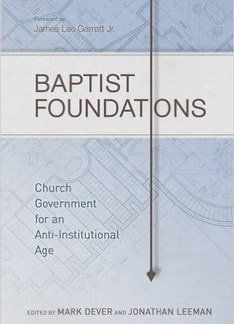This volume is a spirited study and defence of a robust and well defined church polity (authority structures and government) from Baptist convictions. It is substantial, thorough and academic in timbre. Nonetheless, it is both enjoyable and profitable.
An array of historians and theologians — many of whom are pastors — blend their notes within and among the 19 essays comprising this work. Five broad elements are addressed: congregationalism; ordinances; membership and discipline; elders and deacons; and inter-church relationships.
British readers should recognise that the book arises primarily out of a Southern Baptist environment, which means some strands of the discussion are less relevant in a conservative evangelical British context.
Even so, what we have here drives us back to first principles. From a careful hermeneutic base, it offers a fairly consistent and cohesive pattern for Baptist churches without being overly prescriptive. It is deeply rooted, Baptist high churchmanship, sometimes wrestling with difficult questions (such as the nature of apostolicity).
It gives the lie to crass assertions or accusations that Baptists have no ecclesiology, while poking a needed finger in the eye of those Baptists who have not bothered to cultivate it.
This is a volume that will both confirm and challenge those with Baptist convictions. Baptists must work through and work out the principles and practices raised here, if they are to be faithful to God’s Word and our heritage.




